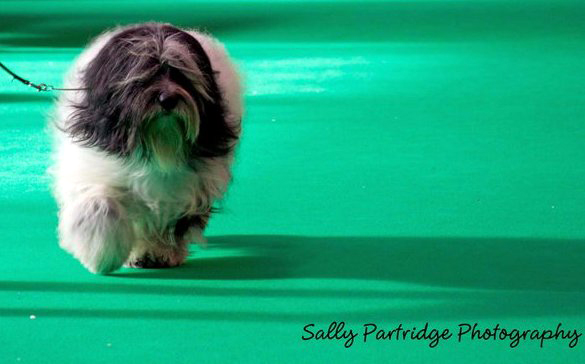September 15, 2006, Vol. 229, No.
6, Pages 964-967
doi: 10.2460/javma.229.6.964
Aromatherapy for
travel-induced excitement in dogs
Deborah L. Wells,
PhD
Canine Behaviour Centre, School of Psychology,
Queen's University Belfast, Belfast BT7 1NN,
Northern Ireland, UK. (Wells)
The author thanks Professor Noel Sheehy for
assistance with facilities.
Objective—To evaluate the efficacy of
the ambient odor of lavender as a treatment for
travel-induced excitement in dogs.
Design—Clinical
trial.
Animals—32 dogs with a history of
travel-induced excitement in owners' cars.
Procedures—Each dog was studied
during travel in the owner's car to a familiar
walking site during 2 conditions of olfactory
stimulation. The first condition was a control
condition, during which dogs were exposed to no
odor other than that arising naturally from the
environment. The second condition was an
experimental condition during which dogs were
exposed to the ambient odor of lavender. Dogs'
behavior was recorded during the car journey for
3 consecutive days under the control condition
and for 3 consecutive days under the
experimental condition. The percentage of time
spent moving, standing, sitting, resting, and
vocalizing in each condition of olfactory
stimulation was quantified for each dog.
Results—Dogs spent significantly
more time resting and sitting and less time
moving and vocalizing during the experimental
condition. There was no significant relationship
between dogs' behavior and sex, castration
status, day, or the order of exposure to each
olfactory condition.
Conclusions and Clinical Relevance—Traditional
treatments for travel-induced excitement in dogs
may be time-consuming, expensive, or associated
with adverse effects. Aromatherapy in the form
of diffused lavender odor may offer a practical
alternative treatment for travel-induced
excitement in this species.
For those who are not familiar with
Aromatherapy, I would like to explain a little
more about it.
Aromatherapy is a holistic treatment, with the
objective of enhancing a physical, and emotional sense
of well-being through inhalation and massage of
essential oils. Essential oils are derived from plants
and are chosen for their individual therapeutic
qualities that are stimulating, refreshing and sedative.
Aromatherapy also blends perfectly with other natural
healing modalities including herbal therapies.
Aromatherapy is also referred to as the fragrant art
of using selected aromatic oils for therapeutic
purposes. It is one of the fastest growing complementary
therapies in the world and is recognized as one of the
most natural and holistic treatments available in modern
times.
Aromatherapy does not aim to treat disease. Its aim
is to release feelings of well-being, harmony and
improved mental and physical health.
Does your PON
experience motion sickness ? Consider the following
formula under the supervision of your vet:
Roman Chamomile - 10 drops
Ginger - 10 drops
Peppermint
- 10
drops
Blend all essential oils in an amber bottle. Have your
PON breath a few drops from a tissue or use a personal
inhaler. Let your PON inhale 30-60 minutes before
departure and also every few minutes while traveling. In
contrast to other remedies, because this is inhaled
instead of swallowed, you don't need to be concerned
about digestive upsets !
PONS sometimes become depressed during false
pregnancies , and under the supervision of your vet, you
may wish to try a Lavender formula:
The balancing properties of Lavender can correct
emotional problems and feelings of instability. It has a
calming effect.
Do NOT add any essential oils directly to
water, as they will not mix water and will rise and stay
on the surface. On the other hand, you can use essential
oils diluted with base oils such as olive, safflower,
jojoba, almond or any other vegetable oil.
Do NOT use essential oils internally and I
advise owners to contact a holistic veterinarian when
using aromatherapy. Please keep us updated on the
success of trying aromatherapy with your PONS !

